NEW YORK (AP) — President Joe Biden and his Brazilian counterpart, Luiz Inácio Lula da Silva, played up their mutual affection for workers’ rights Wednesday as the leaders of the Western Hemisphere’s two largest democracies met in New York, steering clear in public about their differences on Ukraine and other matters.
They announced a new partnership on supporting labor while avoiding openly discussing disagreements such as U.S. policy toward Cuba and Russia’s war in Ukraine, mere hours before Lula’s first-ever bilateral meeting with his Ukrainian counterpart. In remarks to reporters, Biden and Lula were eager to display their shared goals on the sidelines of the U.N. General Assembly.
Biden sought to tie the meeting to domestic matters. Long a champion of labor unions, Biden is navigating strikes in the U.S. by autoworkers, screenwriters and actors who are seeking better pay and protections in a changing global economy. He has declined the request by the United Auto Workers leader to join the picket line.
“When the middle does well, everybody does well,” Biden told Lula. “Working-class folks have a chance to move up. And the wealthy still do fine, as long as they pay their taxes.”
Lula said he had never heard an American president speak so highly of workers and described their common cause as a chance to transform ties between the countries.
“This meeting here, for me, is more than a bilateral meeting; it is the rebirth of a new era in the relationship between the U.S. and Brazil. It is a relationship of equals,” Lula said. He later described it as “a golden moment for us.”
Initial hopes that Lula would prove a staunch ally for Biden have been tempered in recent months, with the Brazilian leader voicing opposition on some issues and at times even seeming to thumb his nose at Washington.
That has included dismissing allegations of Venezuela’s authoritarianism, calling for decreased dependence on the dollar for global trade and accusing the U.S. of fueling bloodshed in Ukraine by providing military aid — and refusing to supply munitions himself. In his speech at the U.N. General Assembly on Tuesday, Lula criticized the U.S. embargo and sanctions targeting Cuba.
The White House issued a readout that showed Biden privately raised some of his policy disagreements with Lula.
The U.S. president tried to make the case that Russia’s war in Ukraine has hurt poorer countries by pushing up food and energy prices, saying that Russia should return to its grain deal with Ukraine to help relieve those pressures. Biden also outlined the steps that he believes should be taken to aid democracy in Venezuela.
The U.S. president had frosty relations with Lula’s predecessor, Jair Bolsonaro, an open admirer of Donald Trump who waited weeks before recognizing Democrat Biden’s 2020 election victory over Republican Trump.
After Bolsonaro’s defeat, his supporters stormed Congress, the Supreme Court and presidential palace in Brasilia in an attempt to oust Lula from power. The circumstances bore a clear resemblance to Trump and the Jan. 6 riot at the U.S. Capitol. Lula quickly traveled to Washington, where he and Biden reflected on the challenges to democracy they had both overcome.
The goal of their new partnership on labor is to stop the exploitation of workers and forced and child labor, as well as workplace discrimination, and create a possible template for others in the Group of 20 to join. The two leaders also want to guarantee that the move away from fossil fuels to renewable energy emphasizes the rights of workers.
Biden sees support from organized labor as an essential part of his 2024 reelection efforts, stressing that his policies will create factory and construction jobs that do not require a college degree.
“Whether it’s the auto workers or any other union worker, record corporation profits should mean record contracts for union workers,” said Biden as he tried to link the announcement to the ongoing U.S. strikes.
Lula got his start in politics as leader of a powerful metalworkers’ union and, on Wednesday, highlighted that he spent more than two decades in factories and has no degree himself.
“This gesture we are doing here is an awakening of hope for millions and millions of Brazilians and Amdericans who need to have the opportunity to live life, to triumph, to work and build their family decently,” Lula said.
Also high on their Wednesday agenda was environmental preservation.
Lula has presented himself as a leader on this front, and his administration has made significant progress in the Amazon.
Deforestation of the Amazon had soared to a 15-year high under Bolsonaro, who called for the development of the rainforest, emboldening loggers and miners to invade protected areas, while defanging environmental authorities. Lula began rebuilding those agencies, created eight protected areas for Indigenous people, and expelled thousands of miners from the massive Yanomami Indigenous territory. Deforestation dropped by nearly half in his first eight months.
He has sought international contributions for Brazil’s Amazon Fund, but donations have been small and symbolic. In February, the U.S. committed to a $50 million donation to the initiative, though it has yet to be provided. Biden later announced he would ask Congress for an additional $500 million, which has yet to be committed.
“It is very important that the United States sees what is happening in Brazil at this historic moment of ecological transition, of changing the energy matrix, the potential our country has for investment,” Lula said.
Later Wednesday, Lula and Ukrainian President Volodymyr Zelenskyy held their bilateral meeting. It was “icebreaking,” Dmytro Kuleba, Ukraine’s foreign minister, told reporters afterward.
Lula has refused to join Washington and Western Europe in backing Ukraine’s fight against Russia’s invasion, and previously called for a club of nations to mediate peace talks. At one point this year, he said both nations had chosen to go to war, but he backtracked following backlash.
“The conversation was very warm and honest, and I think both presidents now understand their positions much better than before,” Kuleba told reporters.
Brazil’s foreign minister Mauro Vieira echoed those sentiments, and said Lula told Zelenskyy that Brazil is willing to join a group of nations chosen by Ukraine and Russia to promote the possibility of peace.
“There is in no way disagreement between the two heads of state,” Vieira said.
___
Boak reported from Washington.
This article first appeared on APnews.com

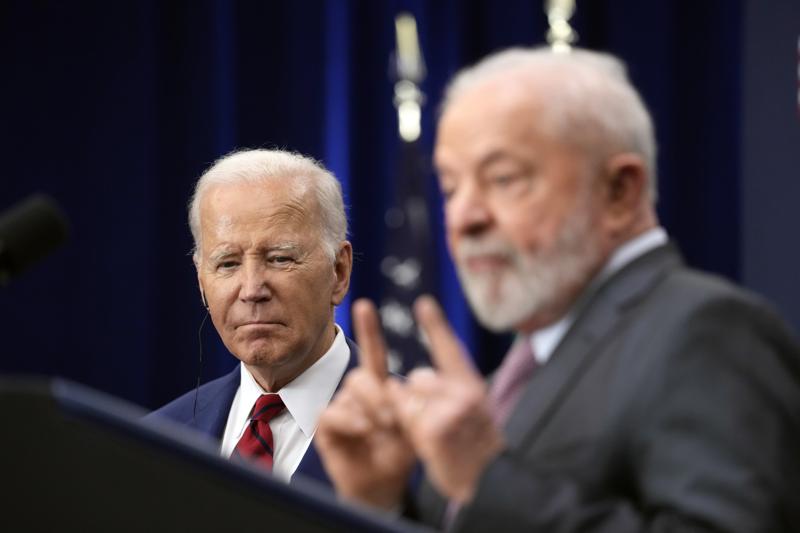

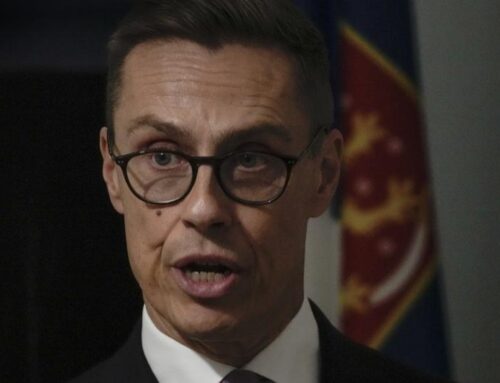
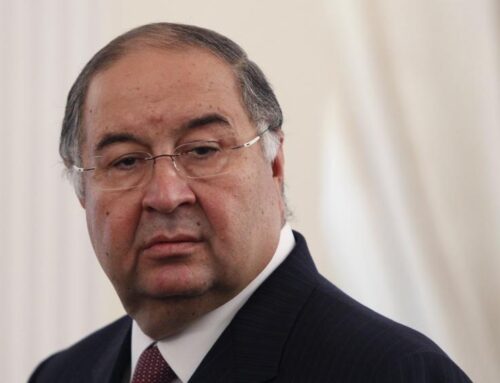
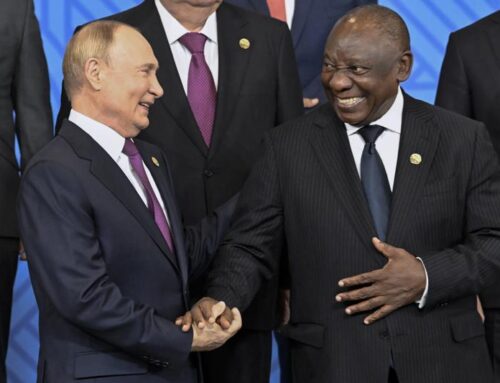
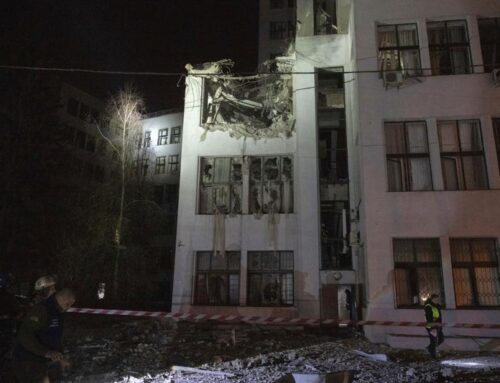

Leave A Comment